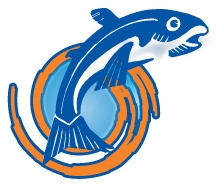How I passed the FSOA (Foreign Service Oral Assessment) - Part 2
I found four books to be extremely useful as I was preparing for the Foreign Service Oral Assessment: the first is touted in the Yahoo Boards as being essential to preparing for the GE portion, the second and third books build on the first, and the fourth and final book was without a doubt the most useful of all to me. Let's take a quick look at them:
1) Getting to Yes by Fisher is THE book to read, according to the Yahoo Groups, and is useful to individual who would like to develop their negotiating skills and habits. It's an easy read, but should not be viewed as being 'the key' to passing the GE, as there just isn't enough time to bring the more powerful techniques into play.
2) Getting Past No by Ury is the sister book to Getting to Yes, and goes beyond simply working together to reach an agreement by focusing on how to negotiate with difficult people or situations. One example of a difficult person would be the actor in the OA Prep video that used to be shown by the DIRs in the past. The concepts are important, and helped me to overlook conflict to focus on the problem at hand instead of the people.
3) Beyond Reason: Using Emotions as you Negotiate by Fisher takes both of those books one step further by examining how emotions can be used enhance or detract, and offering advice on cutting through the emotions to bring people to the table. I found this book to be very interesting and helpful, especially in light of the many discussions in the Yahoo Groups about the effect of group dynamics and personalities during the GE. Don't wait for the die to be cast; take charge and get the job done the right way!
4) The last one was my favorite, and of greatest benefit to me personally. The EQ Edge: Emotional Intelligence and Your Success by Stein and Book was recommended several years ago by my good friend, Kejnas, and was almost immediately pooh-poohed in the Yahoo Groups. I would suspect that some of those members did not take time to look at it more closely. The book delves into how to identify and strengthen several areas of one's life: the Intrapersonal, Interpersonal, Adaptability, Stress Management, and Mood. Each of these 'realms' have specific characteristics that parallel and compliment the thirteen dimensions assessed during the OA. In addition to enabling you to identify them, the book steps you through the process of turning areas which may be underutilized into real strengths. I stated in a previous post that my career change provided me with the experience to approach the FSOA from a position of strength. This book added the polish and confidence I needed stand out in each of the three sections of the OA: the GE, CM, and SI.
Overall, none of these books will guarantee that you pass the threshold at the OA. There's no magic bullet except for doing exactly what BEX asks you to do. What these books can do, however, is help you identify and strengthen potential shortcomings and avoid potential pitfalls. There are thirteen dimensions. Perhaps you are great at ten of them. That's good, and you might do ok at the OA. But why not examine the remaining three dimensions and take the time to find ways to integrate them into your life as well? That is what will give you the edge you need at the FSOA, nothing more, nothing less.
I'd be curious to hear other opinions about these books; please comment and leave your reviews, thoughts, or experiences putting them into practice!
Labels: Foreign Service, FS, FSOA, Oral Assessment, State Department
